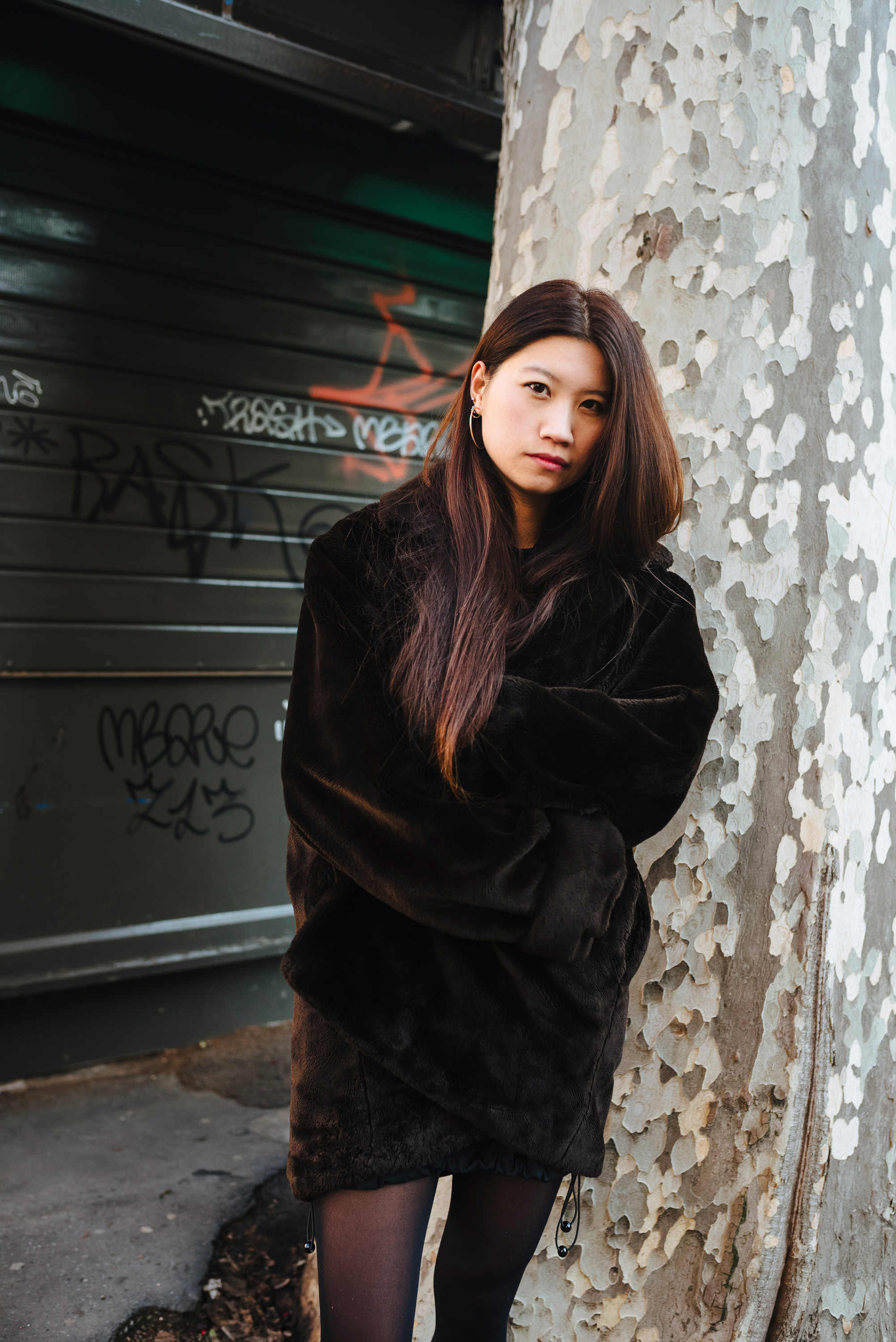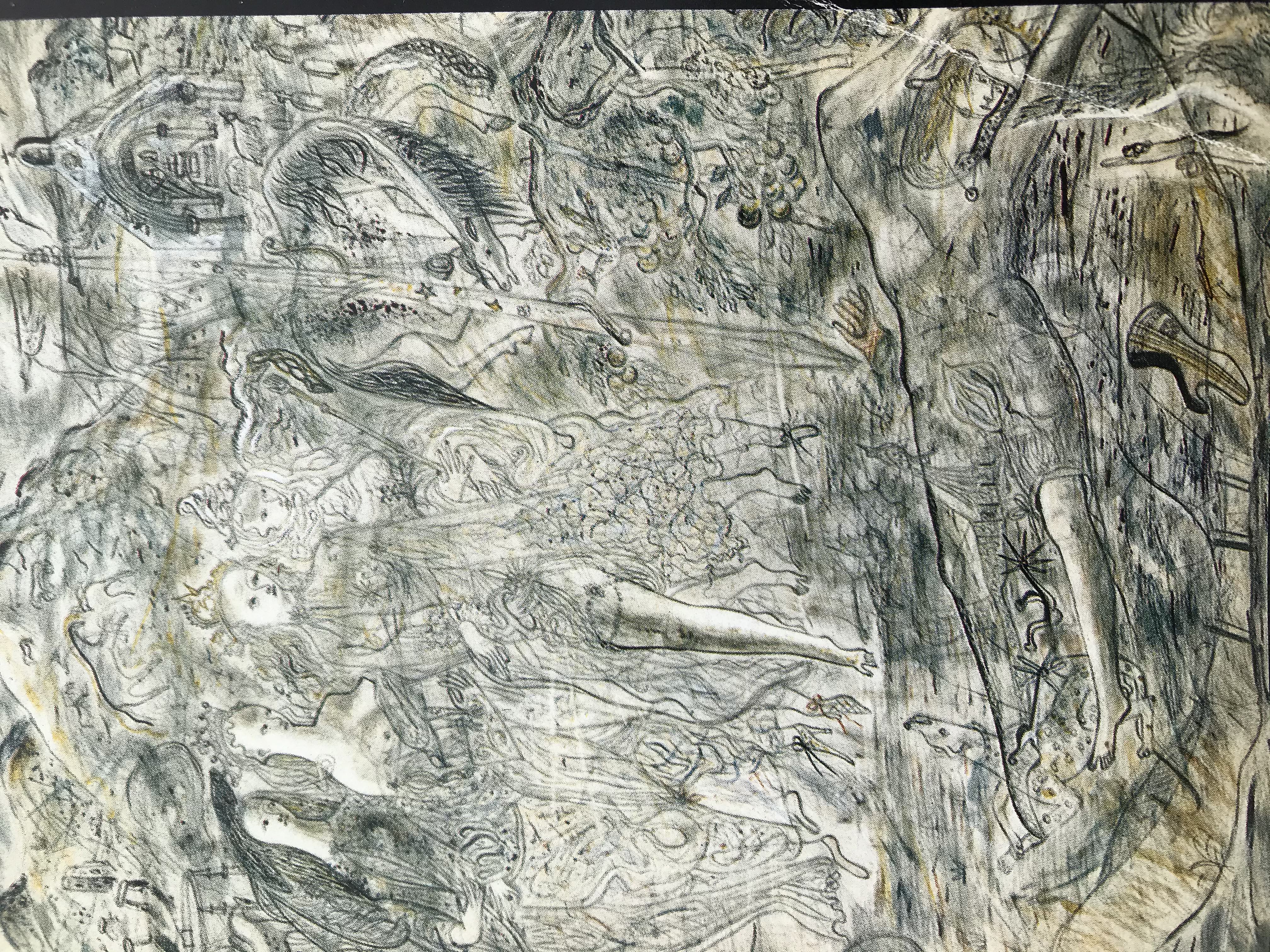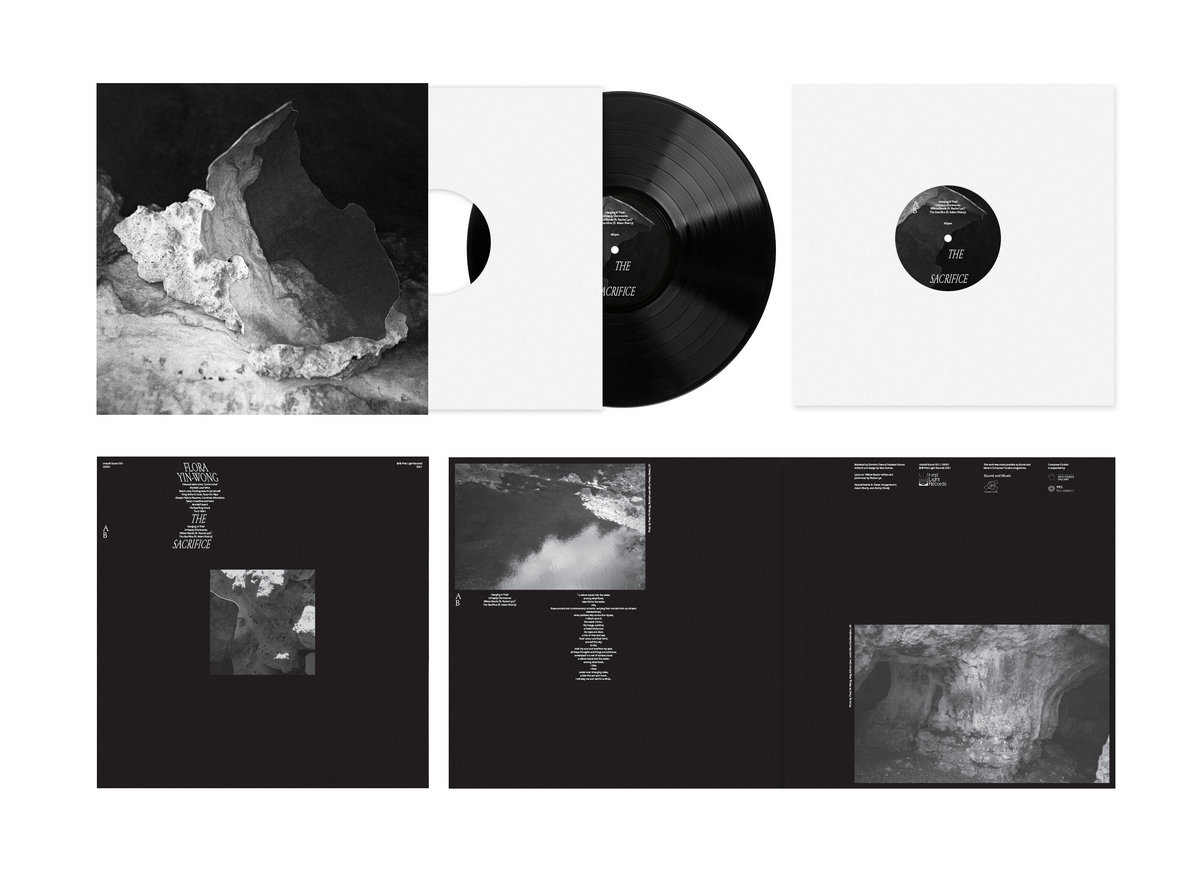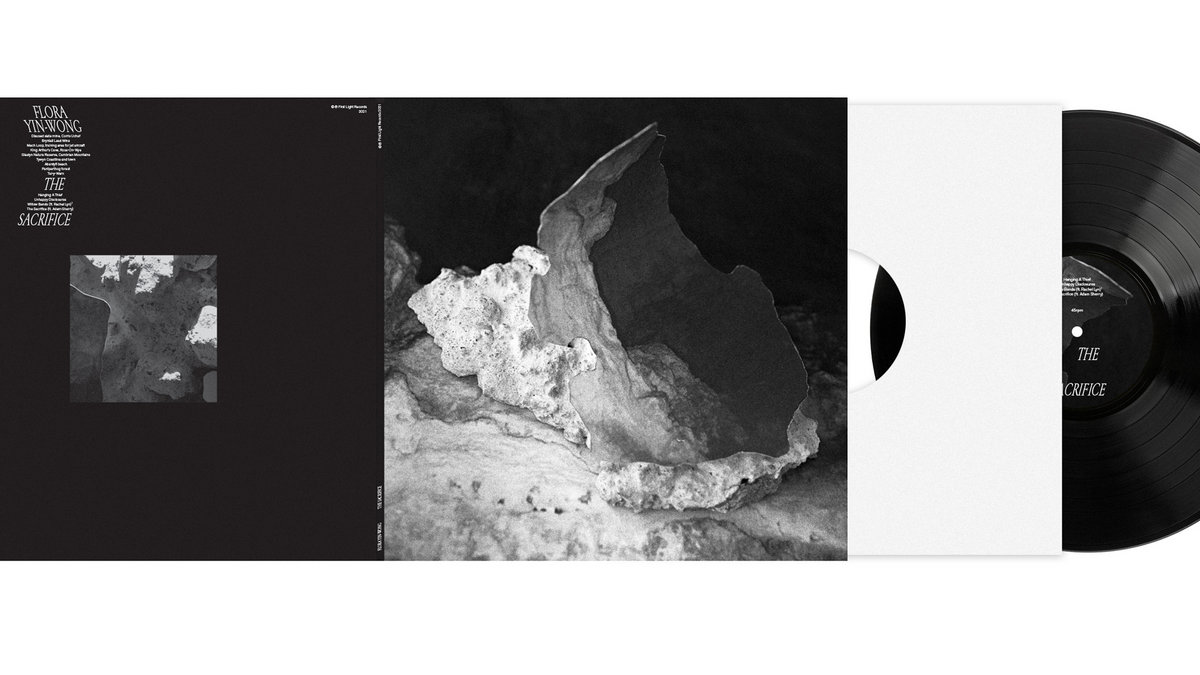Malak Al Suwaihel
Published: 27.11.2021
Interview
with
Flora
Yin Wong
Mono no aware, a phrase derived from 18th century Edo period Japanese literary criticism, is innate with an aesthetic torrent of impermanence heightened by a subtle sadness for the elusive and fleeting nature of youth, experience, and memory. It is to be aware of the transience of things, exalted by the ephemerality of life. A critically acclaimed compilation album of ambient and contemporary electronic tracks by the same name, mono no aware, released on PAN records in 2017 features a commendable selection of PAN artists including London-born experimental artist, producer, writer, and DJ Flora Yin Wong. Her contribution to the album is a track titled “Lugere,” Latin for “to mourn,” which was this writer’s introduction to Yin Wong’s musical catalogue. Yin Wong sonically weaves a phantasmagoric ambient melody imbued with feathery, almost incorporeal vocals and chants tethered by metallic dub noises and shimmering strings.
From PAN release “Lugere” to Purple Tape Pedigree tape-release “City God” (2016)—an experimental grime and electronic track alluding to the Daoist afterlife and patron deities of Chinese folk religion—are notable points of departure for Yin Wong to a laudable music career. Of Chinese and Malaysian descent, her debut album Holy Palm (2020) on Modern Love is both a sonic diary and a long ritualistic, yet personal meditation on memory and superstition made audible through chimes, field recordings, and abstract textured electronics. Holy Palm’s production lays the foundation for Yin Wong’s most recent album release, The Sacrifice (2021) via First light Records—without hesitation, my team and I would argue is a masterclass in ‘acoustic ecology’ or soundscape studies. An exploration of isolation and existential inspection, the album is narratively contoured by The Mabinogion, a collection of 12-13th century mytho-historical Welsh tales of intrepid heroism, of youthhood, and journeys of redemption. Yin Wong draws on the power of paradoxes to sonically integrate field recordings from the idyllic Welsh countryside with mechanized synths, densely layered drones, and spectral vocals.
In The Sacrifice on the track titled, “Willow Bends” (ft. Rachel Lyn), through a statement reflecting the temperance of mono no aware, Yin Wong’s lyrics (sung by Rachel Lyn) read: "These ancient and contemporary currents, carrying their secrets from up-stream." Her musicalcatalog is a conscious and sonorous exploration of the ephemerality of life—a journey along a rapid torrent of gushing water where time and experience pass us by only to be recaptured through memory and art. From her incorporation of traditional Chinese instruments like the yangqin and tsurigane bell to her innumerable collaborations and mixes of digitized beats and lo-fi electronic productions, Yin Wong captures these “secrets from up-stream” by musically probing questions of culture, identity, and illusive memory against the backdrop of marooned dreamscapes and beyond the restraints of time and space.
From PAN release “Lugere” to Purple Tape Pedigree tape-release “City God” (2016)—an experimental grime and electronic track alluding to the Daoist afterlife and patron deities of Chinese folk religion—are notable points of departure for Yin Wong to a laudable music career. Of Chinese and Malaysian descent, her debut album Holy Palm (2020) on Modern Love is both a sonic diary and a long ritualistic, yet personal meditation on memory and superstition made audible through chimes, field recordings, and abstract textured electronics. Holy Palm’s production lays the foundation for Yin Wong’s most recent album release, The Sacrifice (2021) via First light Records—without hesitation, my team and I would argue is a masterclass in ‘acoustic ecology’ or soundscape studies. An exploration of isolation and existential inspection, the album is narratively contoured by The Mabinogion, a collection of 12-13th century mytho-historical Welsh tales of intrepid heroism, of youthhood, and journeys of redemption. Yin Wong draws on the power of paradoxes to sonically integrate field recordings from the idyllic Welsh countryside with mechanized synths, densely layered drones, and spectral vocals.
In The Sacrifice on the track titled, “Willow Bends” (ft. Rachel Lyn), through a statement reflecting the temperance of mono no aware, Yin Wong’s lyrics (sung by Rachel Lyn) read: "These ancient and contemporary currents, carrying their secrets from up-stream." Her musicalcatalog is a conscious and sonorous exploration of the ephemerality of life—a journey along a rapid torrent of gushing water where time and experience pass us by only to be recaptured through memory and art. From her incorporation of traditional Chinese instruments like the yangqin and tsurigane bell to her innumerable collaborations and mixes of digitized beats and lo-fi electronic productions, Yin Wong captures these “secrets from up-stream” by musically probing questions of culture, identity, and illusive memory against the backdrop of marooned dreamscapes and beyond the restraints of time and space.
Below is my digital conversation with Flora Yin Wong.
- Background
Malak Al-Suwaihel (MS): I’d like to trace your evolution in music—namely, your experience and background in music-making. Have you always felt musically inclined? How did you find yourself breaking into or working in the music industry?Flora Yin Wong (FYW): I’ve always been obsessed with music since I was a kid. I never wanted to or thought I could ‘be a musician’ though. Formally, I played violin for a few grades, was in choirs, and in more recent years did a Mixing & Mastering course at Goldsmiths but I’m not trained in say music theory at all. Whilst studying Law at university, I was writing a music blog which was picked up by much bigger music journals and [my journey] started from there…
- Identity
MS: You’re often introduced as “London-born, Chinese-Malaysian producer, writer, and DJ.” While such categories may seem prescriptive or limiting, as a transnational and multicultural artist, do you find yourself inserting your cultural background into your music? Is it ever a conscious effort?FYW: Unfortunately, I have a chip on my shoulder about class (especially working within the creative industry) so I think I end up being very aware and also proud that I grew up in London as a child of working class immigrants. Culturally, I’ve always felt very British. Parts of Chinese culture are still pretty alien to me, but if I ever identify as British to a stranger they will ask where I’m ‘really from.’ Maybe it’s a sense of reclaiming these cultural ideas without feeling embarrassed anymore?



Courtesy of Flora Yin Wong
- New Release
MS: Following the release of Holy Palm (2020) is your latest album release, The Sacrifice (2021). The name is a direct reference to The Mabinogion, a compilation of oral Welsh stories from the 12-13th century preserved in fragmented manuscripts. What attracts you to such lore of mythic figures and Celtic mythology, and what makes these Welsh sounds and stories such connective and beguiling sources of inspiration?FYW: When I was staying there in a tiny remote cabin in isolation (except for my boyfriend and shitloads of spiders), I think it was the most identifiable thing for me. We went to a second hand bookshop in the little town and I found an old book titled The Mabinogion and was drawn to its haunting cover of what looked like wispy dryads and wraiths. Seemed like an apt starting point as we continued to explore ancient caves and abandoned mines out there.
Courtesy of Flora Yin Wong
- Sound
MS: Throughout the four tracks on The Sacrifice, along with your own compositions of synth and tender vocals, you’ve utilized field recordings you’ve made through the idyllic yet overcast Welsh countryside. Instrumentally, can you describe your process? What tools and sounds do you find yourself recurrently gravitating towards or influenced by when composing your music?FYW: It’s usually just a big mess! Everything is accidental how it comes together.
MS: In regards to process and sound, how is this album different from Holy Palm and your past mixes?
FYW: This was made as a commissioned project by the label so it was structured with a focus on field recordings from the beginning unlike the rest of my previous work.
MS: Do you have a particular preference for an instrument or sound? Any that you have yet to experiment with?
FYW: Not necessarily—I’ve always been more into contemporary electronic sounds but I think in terms of organic textures, I prefer very early and ancient instruments. I lean towards string and percussion as opposed to say wind or vocals.
Courtesy of Flora Yin Wong
- Influence
MS: Where do you find or mine for inspiration when composing?FYW: Tbh my music and written output is very emotionally-driven. It’s just how I feel at the time and I guess I’ve always loved symbolism, taxonomy, and etymology, which aims to make more sense of these abstracted emotions.
MS: I understand that your mother’s an opera singer. Has that, if at all, affected you musically?
FYW: It didn’t initially, it’s only within recent years that I found it interesting. As a child it was awful. It’s all she ever did and still does. Constantly singing, writing, teaching, or listening to opera 24/7.

Courtesy of Flora Yin Wong
- Writing
MS: Apart from being an accomplished musician, I understand you’re a writer. You’ve worked as a journalist at Dazed and have written fiction in the past. Can you talk to us more about your creative inclinations as a writer and your work in writing? Any potential publications to look forward to?FYW: I just released my first book [titled, Liturgy: Liturgy and Identity] and contributed a new short piece for Ignota Books. I would like to work on a full novel at some point, but with a job in bookings, gigs, and DJing it seems pretty hard to find time.
MS: How does one creative process, namely writing, lend itself to your music and vice versa?
FYW: Only thematically does it lend itself—through thoughts and emotions. Kind of hard to differentiate the processes.
MS: The genre best described as ‘conceptronica’—described as the integration of philosophy, literature, critical theory, and ‘contemporary electronic music’—as both a writer and musician in the relevant field, any thoughts?
FYW: It’s a pretty silly term but I think everyone knew exactly what it meant in the sense of categorising music on a social level i.e ‘scene.’ Not to sound like a grumpy old man but I mean these days it feels like you have to tick all these boxes to be deemed ‘relevant’ etc.

Courtesy of Flora Yin Wong
- Future-Tense
MS: Post The Sacrifice, what’s next for you? I understand you’re currently based in London, UK. Any plans for relocation if the music takes you?FYW: I always want to move away, but obviously it is pretty messed up at the moment still. I’m currently working on a couple of music collaborations and a tape release from an artist residency I was on in Italy. Hoping to do more physical and hands-on creative work tbh.


